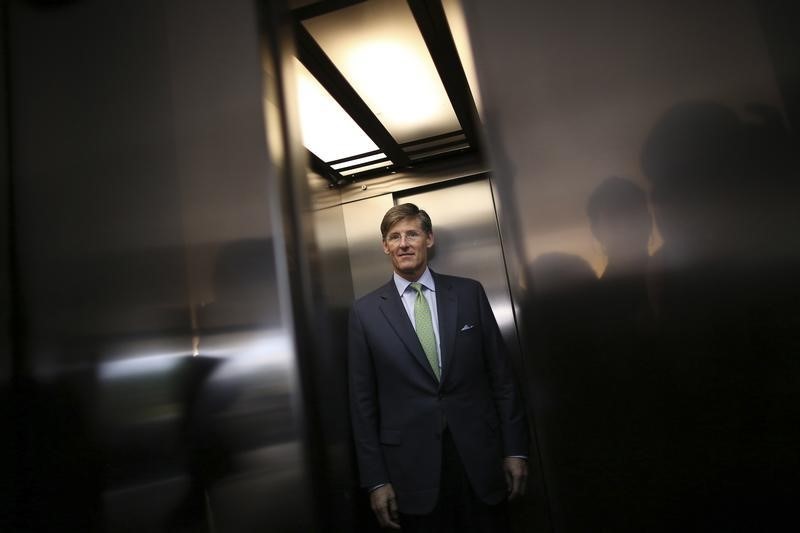(Reuters) - Citigroup Inc (N:C) cut its chief executive Michael Corbat's annual compensation by 10.3 percent in 2014, citing high legal expenses and the company's failure to win regulatory approval for its capital plan in last year's stress tests.
Corbat's earned a total of $13 million for 2014, down from $14.5 million a year earlier, according to the compensation approved by Citi's board.
The board's compensation committee said its the company's proxy statement that it had also cut compensation, or held back raises, for Citigroup's chief financial officer, the chief executive of its institutional business, the chief executive of it consumer bank and its head of franchise risk and strategy.
His pay package includes deferred stock of about $3.5 million under Citi's compensation plan, which was overhauled two years ago amid shareholder pressure.
Corbat was paid $14.5 million in 2014, down from $17.6 million the year before, under a disclosure format prescribed by the U.S. Securities and Exchange Commission.
Citi, like other big banks, has turned to cost cuts to boost profit, as low interest rates and new regulations have crimped revenue growth. But the efforts have been overshadowed by fines and higher costs for technology and compliance.
The board said its scores for paying executives were lowered by high costs last year to reposition Citigroup businesses.
The bank raised its quarterly dividend and announced plans to buy back $7.8 billion of stock over five quarters after it cleared the Federal Reserve's annual stress test last week.
Citi failed the stress tests in 2012 and 2014.
Chief Financial Officer John Gerspach's total compensation for 2014 was unchanged at $7.5 million, according to the filing. Manuel Medina-Mora, who heads Citi's global consumer banking arm but will retire in June, received $9.5 million for 2014.
The board faulted Gerspach for the 2014 stress test failure and cited Medina-Mora for control issues at Banamex, the company's unit in Mexico that last year lost more than $500 million to fraud involving a borrower.
James Forese, chief executive of the Institutional Clients Group, was paid $13.5 million, which was down by $500,000, or 4 percent, from a year earlier. The board cited legal and regulatory issues with the foreign exchange business under his supervision.

Risk and strategy chief Brian Leach was paid $8.1 million, down $900,000, or 10 percent, the proxy said. Leach was cited for his responsibility for the failed capital plan in 2014. year.